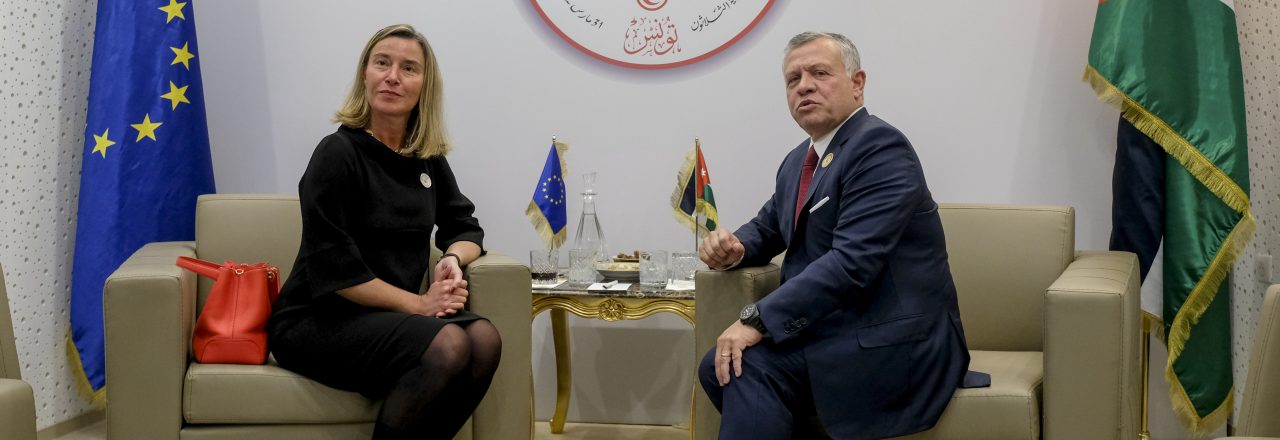
Jordanian King Abdullah II visits Morocco, Italy, France and Tunisia
Between 27 and 31 March, King Abdullah II of Jordan visited four nations, ending his tour in Tunisia, where the 30th Arab League Summit took place. On 27 March, King Mohammed VI received the Jordanian King at the Royal Palace in Casablanca to discuss wide-ranging issues driving politics in the Middle East, he then expressed his unwavering support to the Palestinian cause and its right to be an independent state with East Jerusalem as its capital. On the bilateral level, they discussed cooperation on several sectors including energy, agriculture, and tourism and agreed to an increase in diplomatic ties. On 28 March, the King received the 2019 Lamp of Peace award for efforts to promote human rights, harmony, interfaith dialogue, and peace in the Middle East and the world in Assisi, Italy. During his speech, to which German Chancellor Angela Merkel, Italian Prime Minister Giuseppe Conte, Italian Episcopal Conference President Gualtiero Bassetti, and President of the European Parliament Antonio Tajani attended, he spoke about the importance of Jerusalem being “a unifying city of peace” and paid tribute to “the suffering families and victims of the terrorist attack on two mosques in Christchurch, New Zealand, two weeks ago.” Chancellor Merkel said the message of interfaith dialogue the King promotes is one of utmost importance, highlighting that Jordan has proven to be a cornerstone for peace in the Middle East, commending his efforts in the promotion of the two-state solution for the Palestinians and Israelis. On 29 March, King Abdullah II met with French President Macron to discuss regional crises, particularly Syria and the Israel-Palestinian issue. Both agreed that a political solution to the Syrian crisis was the only way to appease instability in the region and in Europe and reiterated their call for a two-state solution. On 31 March and in his statement for the Arab League Summit in Tunisia, King Abdullah stressed again his refusal of the ongoing attempts by Israelis to change the identity of Jerusalem: “We reject any attempt to change the identity of Jerusalem, it remains Arab and the Palestinian issue remains our priority.” He also stressed the importance to continue “[our] fight against terrorism and extremism […] despite the defeat of Daesh” which concluded his four-nation visit.
- The Euromed news are edited by the team of the Euro-Mediterranean Policies Department of the European Institute of the Mediterranean -


